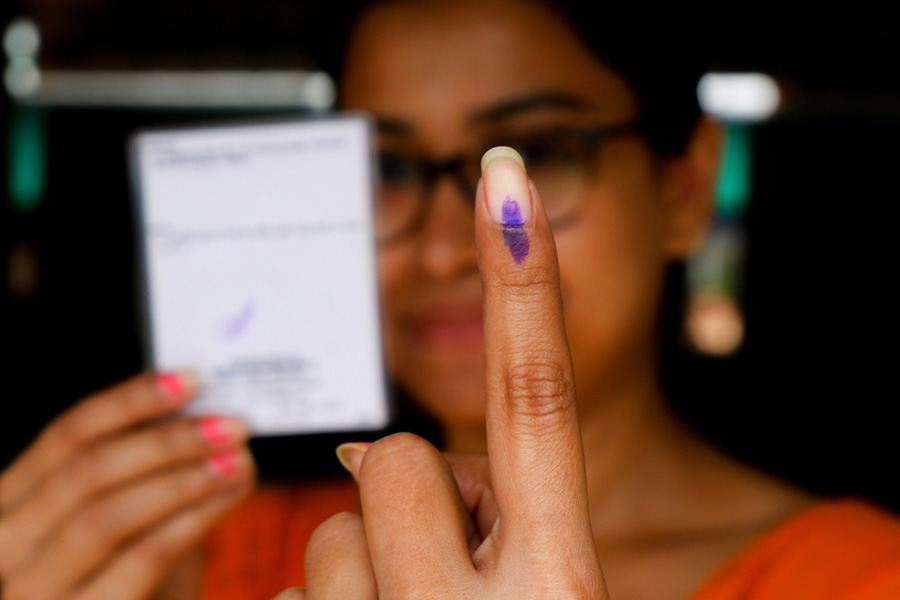A man from Kalyan Dombivli municipal area near Mumbai, who had arrived at the Delhi airport from South Africa via Dubai before flying to Mumbai, has tested positive for the Omicron variant of coronavirus, officials said on Saturday, adding that it is the first such case from Maharashtra and the fourth case in India so far.
Earlier in the day, a 72-year-old man was found infected with the Omicron variant of coronavirus in Jamnagar in Gujarat following his return from Zimbabwe, the state health department said on Saturday.
The two (Gujarat and Mumbai) cases were reported on Saturday amid reports from Uttar Pradesh and Karnataka that several passengers who had returned to the country by air from South Africa and other nations had fled, making it difficult for the authorities to trace them.
About the Mumbai resident, official sources in Delhi said the 33-year-old man had arrived in the national capital on November 23 and had given his samples for COVID-19 testing at the Delhi airport. He had then taken a flight to Mumbai.
"A man from Kalyan Dombivli municipal corporation area has tested positive for the Omicron variant of COVID-19. He is the first official case in the state," Maharashtra health department director Dr Archana Patil told PTI in Mumbai. "He came with a group of four people. We are tracing and tracking them. Their RT-PCR test, as well as genome sequencing, will be done as well, she said.
In Gujarat, the state's health department said that the elderly man's samples were sent for genome sequencing after he tested positive for COVID-19 on Thursday. Gujarat's Commissioner of Health Jai Prakash Shivhare has confirmed that the man was found infected with the Omicron strain.
Before Saturday's two confirmed cases, two persons had tested positive for the Omicron variant in Karnataka where efforts are on to trace as many as 10 people who had arrived from South Africa and had gone missing.
"It has come out in the media that 10 people are untraceable. Officials have been directed to look into it, trace them by tonight and get them tested," Karnataka minister R Ashok was quoted as saying by Hindustan Times.
Stating that he has no official information about it, health minister K Sudhakar said in case they have not been traced, the police are efficient enough to find them, as in the past. "But my appeal is that no one should switch off their mobiles and go untraceable. It is not the right way. They should behave responsibly."
This comes after a 66-year-old South African - India's first confirmed Omicron Covid case - "fled" the country a week after landing in Bengaluru. The man, who had received both vaccine doses, tested positive on arrival and because he was asymptomatic, was asked to self-isolate. His samples were sent for testing.
In Uttar Pradesh's Meerut, 13 of nearly 300 people on flights originating outside the country disappeared after providing false addresses and contact information. Seven flew in from South Africa, where the Omicron variant was first reported, an NDTV said quoting news agency ANI. Officials are trying to track and test them for COVID-19.
The Omicron strain has been marked as a "variant of concern" by the World Health Organization (WHO).
South Africa, the global epicentre of an outbreak of the new highly contagious Omicron Covid-19 variant, says it’s bracing for what could be the country’s fourth pandemic wave amid a big rise in coronavirus cases, including young children.
Dr Samiran Panda, epidemiology chief at the Indian Council of Medical Research, has said he would not be surprised if Omicron was already in India. "The first case (of 'Omicron') was reported (in Botswana) on November 9 and there has been a lot of travel since then from South Africa," Panda told NDTV. "I won't be surprised if there's detection in India. It's just a matter of time, given the high transmissibility that this variant comes with," he added.
Dr Waasila Jassat of South Africa’s National Institute for Communicable Diseases, said the highest risk of hospital admissions was still in the over 65 age group. The percentage in the middle age group was low, while data shows that it was "very" high in young children,” she said.











